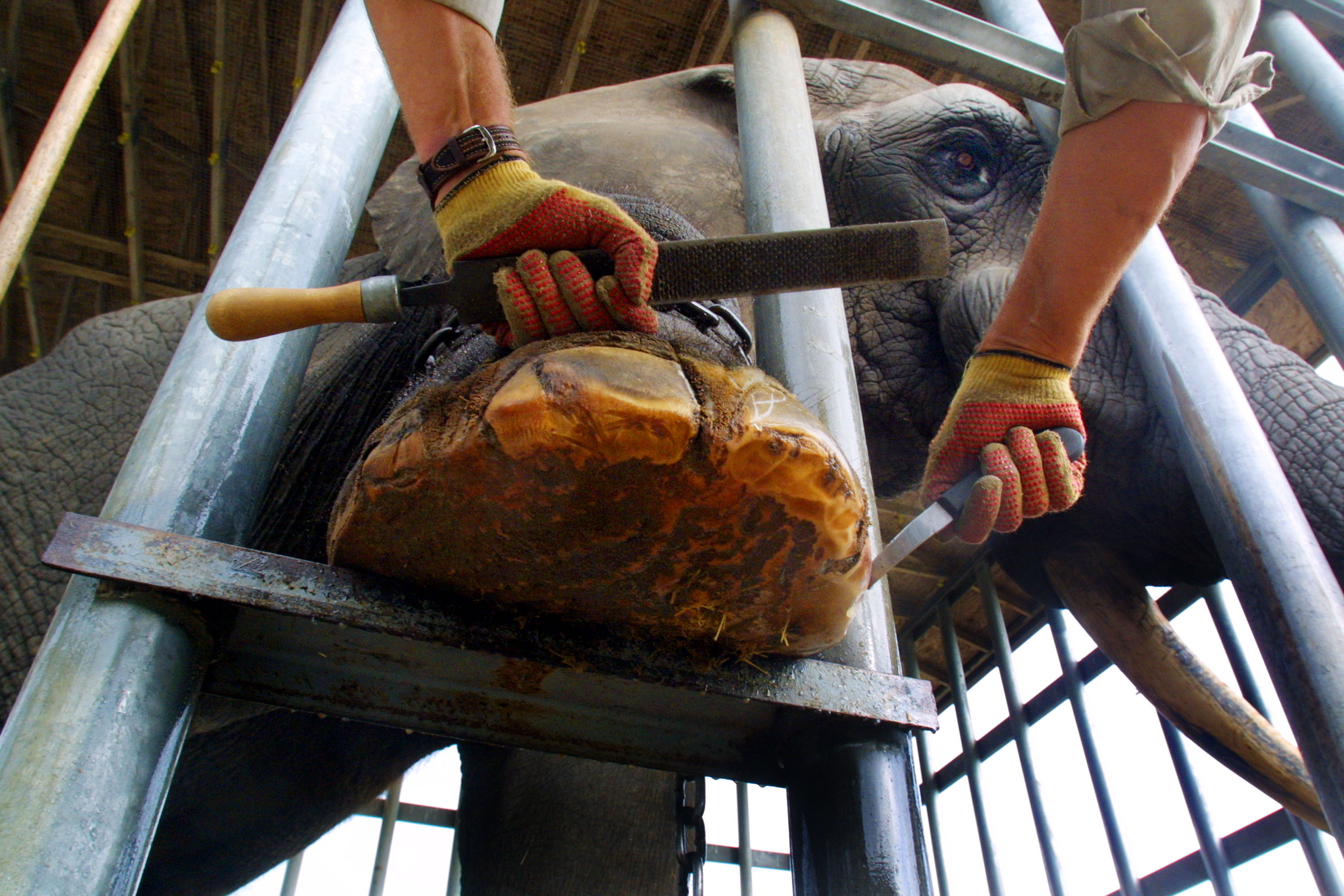Are Elephants People? The Legal And Ethical Debate

Discover more detailed and exciting information on our website. Click the link below to start your adventure: Visit Best Website. Don't miss out!
Table of Contents
Are Elephants People? The Ongoing Legal and Ethical Debate
The question, "Are elephants people?" might seem absurd at first glance. However, a growing body of scientific research and legal arguments are challenging our anthropocentric worldview, forcing a critical examination of elephant intelligence, social complexity, and emotional depth. This complex issue sparks a fiery debate with significant legal and ethical ramifications for elephant conservation and welfare.
This article delves into the burgeoning legal and ethical debate surrounding elephant personhood, exploring the scientific evidence, legal precedents, and the implications for our treatment of these magnificent creatures.
The Science Behind Elephant Personhood
The argument for recognizing elephants as possessing a form of personhood hinges on compelling scientific evidence highlighting their remarkable cognitive abilities and emotional lives. Decades of research have revealed:
- High Intelligence: Elephants demonstrate exceptional problem-solving skills, sophisticated communication, and long-term memory. They use tools, exhibit self-awareness, and display signs of complex social learning.
- Emotional Depth: Research indicates elephants experience a wide range of emotions, including grief, empathy, and joy. Their complex social structures, characterized by strong family bonds and mourning rituals, further underscore their emotional depth.
- Self-Awareness: Studies using mirror self-recognition tests have shown that elephants recognize themselves, a key indicator of self-awareness often associated with higher intelligence.
- Complex Communication: Elephants communicate through infrasound, a low-frequency sound imperceptible to humans, allowing them to communicate over vast distances. Their vocalizations, body language, and even scent marking contribute to a rich communication system.
These findings challenge the traditional human-centric view of intelligence and consciousness, prompting the question: if elephants possess such advanced cognitive and emotional capacities, shouldn't they be afforded greater legal protection?
The Legal Fight for Elephant Rights
While no country currently grants elephants legal personhood in the same way it does for humans, the legal landscape is shifting. Advocates are increasingly pushing for:
- Legal Personhood: This would grant elephants fundamental rights, similar to those afforded to corporations or even some natural entities like rivers. This would offer significant protection from exploitation and harm.
- Improved Welfare Standards: Even without full personhood, stronger laws are needed to protect elephants from habitat destruction, poaching, and cruel captivity. This includes stricter enforcement of existing anti-poaching laws and a global commitment to ending the ivory trade.
- Increased Sanctuary Protection: Expanding and strengthening elephant sanctuaries and reserves is crucial to ensuring their long-term survival and welfare.
The Non-Human Rights Project (NhRP), for instance, has spearheaded several landmark legal cases arguing for the legal rights of captive elephants, though without success so far. These cases, however, are setting important precedents and raising public awareness about the issue.
Ethical Considerations: Beyond the Law
The legal debate surrounding elephant personhood is intrinsically linked to a broader ethical discussion. Our treatment of elephants reflects our values and our understanding of our place in the natural world. Do we have a moral obligation to protect species with such complex cognitive and emotional lives? The answer, for many, is a resounding yes.
Ignoring the scientific evidence and ethical considerations has catastrophic consequences. Elephant populations are dwindling due to habitat loss, poaching, and the illegal wildlife trade. Recognizing their inherent worth, even if not granting full personhood, necessitates a radical shift in our approach to their conservation and welfare.
Conclusion: A Call for Action
The question, "Are elephants people?" is not a simple yes or no answer. However, the accumulating scientific evidence and growing ethical concerns demand a serious reassessment of our relationship with these magnificent creatures. Supporting organizations dedicated to elephant conservation and welfare, advocating for stronger legal protections, and raising public awareness are crucial steps toward ensuring a future where elephants are treated with the respect and dignity they deserve. Learn more and get involved today – the future of elephants depends on it.

Thank you for visiting our website wich cover about Are Elephants People? The Legal And Ethical Debate. We hope the information provided has been useful to you. Feel free to contact us if you have any questions or need further assistance. See you next time and dont miss to bookmark.
Featured Posts
-
 Open De Australia Ben Shelton La Nueva Sensacion Del Tenis
Jan 24, 2025
Open De Australia Ben Shelton La Nueva Sensacion Del Tenis
Jan 24, 2025 -
 Stargate Deal Signals Open Ais Shift Away From Microsofts Cloud
Jan 24, 2025
Stargate Deal Signals Open Ais Shift Away From Microsofts Cloud
Jan 24, 2025 -
 Legal Trouble For Manchester City Transfer Deal Under Scrutiny
Jan 24, 2025
Legal Trouble For Manchester City Transfer Deal Under Scrutiny
Jan 24, 2025 -
 La Dea Pesta Gol Analisi Tattica Di Atalanta Vs Sturm Graz
Jan 24, 2025
La Dea Pesta Gol Analisi Tattica Di Atalanta Vs Sturm Graz
Jan 24, 2025 -
 The Unsung Heroes How Middle Managers Benefit Companies And Staff
Jan 24, 2025
The Unsung Heroes How Middle Managers Benefit Companies And Staff
Jan 24, 2025
Latest Posts
-
 Frente Frio Inminente Impacto En Mexico Pronosticado
Jan 25, 2025
Frente Frio Inminente Impacto En Mexico Pronosticado
Jan 25, 2025 -
 Die Saat Des Heiligen Feigenbaums Oscar Nominierung 2025
Jan 25, 2025
Die Saat Des Heiligen Feigenbaums Oscar Nominierung 2025
Jan 25, 2025 -
 Why Women Avoid Police When Reporting Intimate Partner Violence
Jan 25, 2025
Why Women Avoid Police When Reporting Intimate Partner Violence
Jan 25, 2025 -
 Karla Sofia Gascon Historica Nominacion Al Oscar
Jan 25, 2025
Karla Sofia Gascon Historica Nominacion Al Oscar
Jan 25, 2025 -
 Grammys 2025 Confirmed Date Venue And Nominees
Jan 25, 2025
Grammys 2025 Confirmed Date Venue And Nominees
Jan 25, 2025